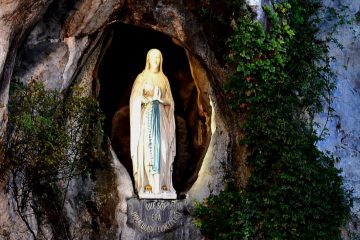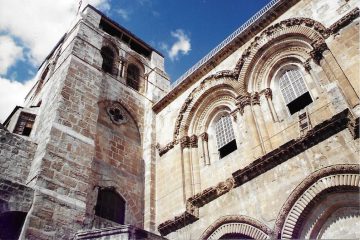Sunday Scripture: Christ is the light of our salvation
March 13, 2011
First Sunday of Lent: Genesis 2: 7-9, 3:1-7; Psalm 51: 3-6, 12-13, 17; Roman 5: 12-19; Matthew 4:1-11.
The early story of creation from which we have an excerpt in our first reading this week, gives us an answer to how evil came into God’s creation (Genesis 2:4a-20). A problem arises because the later creation story, which is placed before our passage, emphasizes the teaching that all that God created was very good (Genesis 1:1-2:4a).
And so it was. Unfortunately, humankind did not follow God’s plan for them, and thus people brought evil into the human condition. Temptation is presented under the image of the serpent who enticed the first couple by appealing to their sense of pride by which they would supposedly “know it all,” or their desire to be “as wise as God.”
From that consideration we look at the Gospel passage that relates the story of the temptation of Jesus. The devil tried to tempt Jesus to sensual satisfaction, then to the pride of showing off His own power, and finally to a display of self-aggrandizement. Then Jesus made it clear that the devil’s offering was in reverse order: Jesus was not to worship the devil, but the devil was to worship and serve the Lord God.
That was an instance in which the devil, who wanted to be in ascendancy, needed to get a whole new way of thinking about his place in the order of creation. “Begone, Satan!” When a creature attempts to reverse God’s order of creation, then evil rears its ugly head and contributes to an obnoxious situation.
So a question arises: Are we left with a big struggle with evil in the human condition as we try to work out our salvation? Our reading from Paul unravels the answer for us. There was Adam whose trespass brought death to many, but much more have the grace of God and the free gift in the grace of Jesus Christ abounded for many. In typical Pauline style the comparison of the two cases proceeds to explain the difference between the two. At the very heart of salvation history the disobedience of Adam was turned around in the obedience of Christ.
There are many ways to reason about that process. One instance we might use is that since sin reigned in death, grace triumphed over death through righteousness to eternal life in Christ Jesus. Or again, just after the text of our Gospel reading is a reference adapted from the Prophet Isaiah: “The people who sat in darkness have seen a great light, and for those who sat in the region and shadow of death light has dawned” (Isaiah 9:1-2//Matthew 4:16). A profound mystery is involved in all of that discussion, and the upshot of it is that we can rejoice greatly at the work of the Lord in bringing about our salvation in Christ.
Psalm 51 on which our psalm response is based is called the Miserere from the first Latin word for mercy. It is one of the seven Penitential Psalms, and it gives us a transition through sorrow for sin to the creation of a clean heart and a new and right spirit within ourselves. It is the uplift we need as we walk the Lenten journey to Easter. In this spirit we can pray, “Restore to me the joy of thy salvation, and uphold me with a willing spirit” (Psalm 51).
Sister Betty Jane is a faculty member at the Athenaeum of Ohio.













